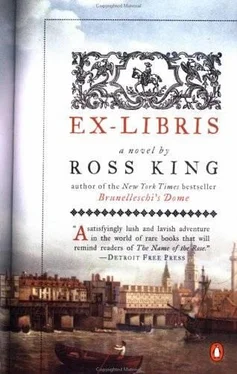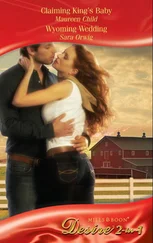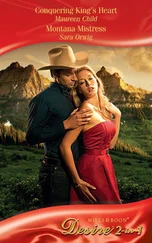This was a stretch of road notorious even in these parts for its pot-holes and its tendency to flood at the first sign of rain. The driver of the coach, a man named Foxcroft, was squinting through the drizzle and mist as he huddled inside his tarpaulin and guided the team along the treacherous road. He had left Margate almost six hours earlier and his bags of mail from Hamburg and Amsterdam were already overdue in London. He might have made London on time, storm or no storm, had he taken the main road through Canterbury and Faversham instead of this miserable detour along the windswept coast. But of course he dared not ride along the main road, just as he no longer dared wear the red-and-gold De Quester livery. A dispute was now commencing before the Lords of the Council as to whether the De Quester monopoly infringed the patent of Lord Stanhope, Master of the Posts and Messengers, who had recently begun using agents of his own-bands of ruffians, in Foxcroft's opinion-to carry his letters to Hamburg and Amsterdam. Not a month earlier Foxcroft had been ambushed by a gang of masked men outside the walls of Canterbury; then another driver was set upon two weeks later, in Gad's Hill. Both times the robbers had worn the garb of highwaymen, but everyone knew that Lord Stanhope's ruffians were behind the outrages. And so for the past few weeks Foxcroft had been condemned to this circuitous route-a route so desolate and forsaken that not even the most desperate highwayman would ever think of haunting it, especially not on a December morning as cold and miserable as this one.
And so it was that Foxcroft could scarcely believe his eyes when he rounded a corner and saw the oncoming convoy of donkeys and, beyond them, some sort of conflagration-fire, smoke, running figures-along the beach. Another of Lord Stanhope's ambushes? He cursed in fright and reined in the horses, but it was too late, the Barbs had whinnied and then reared in their traces at a loud burst of what sounded like musket-fire. Foxcroft teetered out of his balance before righting himself and gripping the reins in one hand, the edge of the seat with the other. In the second before his hat brim slipped over his eyes he made out, far in the distance, what looked like the wreckage of a ship.
The horses were plunging forward through the muck, muscling past the chain of mules and thundering pell-mell along the narrow road in the direction of the beach and its orange bonfires. The futchels creaked and squealed as the vehicle swung round another corner, tipping on to two wheels and hurling gobbets of mud into the osiers blurring past on both sides. Foxcroft thought he saw a clutch of figures huddled among them. But then one of the wheels struck a stone and he began bouncing in his seat like the village scold on her cucking-stool.
From the muddy road it took less than a minute for the coach to reach the verge of the even muddier beach. By this time the wheels had struck two more stones and Foxcroft, dislodged, found himself clinging with both hands to the seat as his boots hung a bare inch from the whirling spokes. Two bags of mail had been lost, along with his hat. Then, as the iron-rimmed wheels hit the sand, the coach slowed with a hard jerk and he heard another crack of musket-fire, much closer now. The horses reared again. He braced a foot on the transom and with a desperate lunge raised himself into the seat.
And it was then that he caught his first sight of them, a group of shadows, a clutch of five or six figures, all rushing towards him. Yes-an ambush of some sort. He twisted round and fumbled for his whip, but the whip had disappeared along with his hat and the bags of mail. The horses reared again as he clutched at the reins, and suddenly the coach lurched to a stop, its wheels stuck fast and sinking into the sand.
'Giddap! Giddap!'
He reached for the musket behind the seat, but it too had disappeared, as had the bag of shot. He spun round in the seat to face his attackers-more of them even than in Canterbury. The horses reared, then dug in, though with its perch and axle-trees ploughing through the sand the coach shifted no more than a couple of inches. Then the horses lunged again and it slid forward with a creak of leather as the wheels found purchase on the shingle.
But it was too late, Foxcroft realised. His lordship's bravos-a good half-dozen of them-were almost upon him.
'Holy mother of God,' he whispered, bracing himself to leap.
***
Captain Quilter was watching the stranded coach-and-six from his shelter behind a cask of alewife thrown overboard from the Star of Lübeck . By now the barrel had been punctured by a musket-ball and brine was spurting through the splintered staves and into the sand. He had heard a shout from among the osiers and, turning his head, glimpsed the coach careering towards the water as it strewed a couple of sacks in its muddy wake.
Gripping one of the barrel's hoops, he raised himself a few inches higher. The sand was as soft and deep as a hassock under his knees. Another shout, this time from the opposite end of the beach. He turned his head to see a group of figures rushing the coach. The vehicle had stopped by now, run aground in the muck and sand at the edge of the beach. The horses reared and kicked in their traces as the lone figure in the coach-box struggled to free the reins from where they were tangled in the futchels.
Quilter was on his feet now, staring through the screen of drizzle at the strange scene unfolding before him. Three of the figures had reached the coach by the time the reins were loosened and the coach jerked violently forward. The other three, one of them wielding the musket, were only a few paces behind and closing quickly.
'Giddap!'
'Get on board!' It was Sir Ambrose, raising one of his companions, the lady, into the box-seat. 'Yes! Go!'
One of the pursuers had dropped to his knee. His musket flashed and gave a cough followed by a puff of smoke. But the coach was rolling again, tipping from side to side like a bark in a heavy sea. A second person, a man, thin and hatless, had also leapt aboard. He was clinging to the wooden boot while Sir Ambrose ran alongside, raising something aloft, a chest of some sort. The man in livery was reloading the musket while the one in the boot strained his slender body, arm outstretched.
But at that second Quilter's attention was caught by something else. One of the lanterns or fireboxes from the messes of the Bellerophon must have ignited a spilled budge-barrel or spirit cask, for suddenly a deafening explosion shook the sky. As Quilter fell to his knees and looked into the offing he saw a fountain of orange fire, a spectacular display of pyrotechnics that dwarfed the bonfires and even the new sun shying behind the clouds. The streaks of fire were still raining into the sea by the time he thought to turn his head and look for the coach. But neither the coach nor its passengers was anywhere in sight. Peering along the strand of beach he saw only their pursuers, the three men whose black-and-gold cloaks had been bathed in copper by the thousand cascading fragments of his ship.
I awoke the next morning feeling slightly unwell. There seemed to be a strange taste, faint and sweet, on the roof of my mouth, and my tongue was parched. When I rose from the bed, waveringly, clutching a bedpost, limbs strangely enervated, I realised how slick I was with sweat, how my bed-linen was soaked as if I were feverish, or as if my slumbers had been hard work. Panicked, for a few seconds I thought I was falling ill with an ague or worse (I have been something of a hypochondriac ever since Arabella's death), but then with a pang of relief I remembered Biddulph's rumbullion. The evening came back to me-Wapping, Orinoco, Villiers, Monboddo-in a steady accretion of detail. With a soft groan I sank into a chair and listened for a few minutes as the herring-gulls squawked heartlessly below the window, feeding and flapping in the mud. I seemed to remember a dream, something violent and frightening. Another alarming effect of last night's rumbullion, I supposed.
Читать дальше












